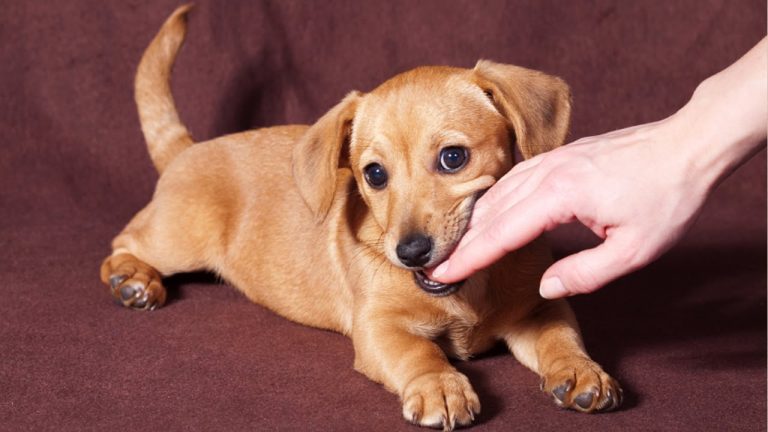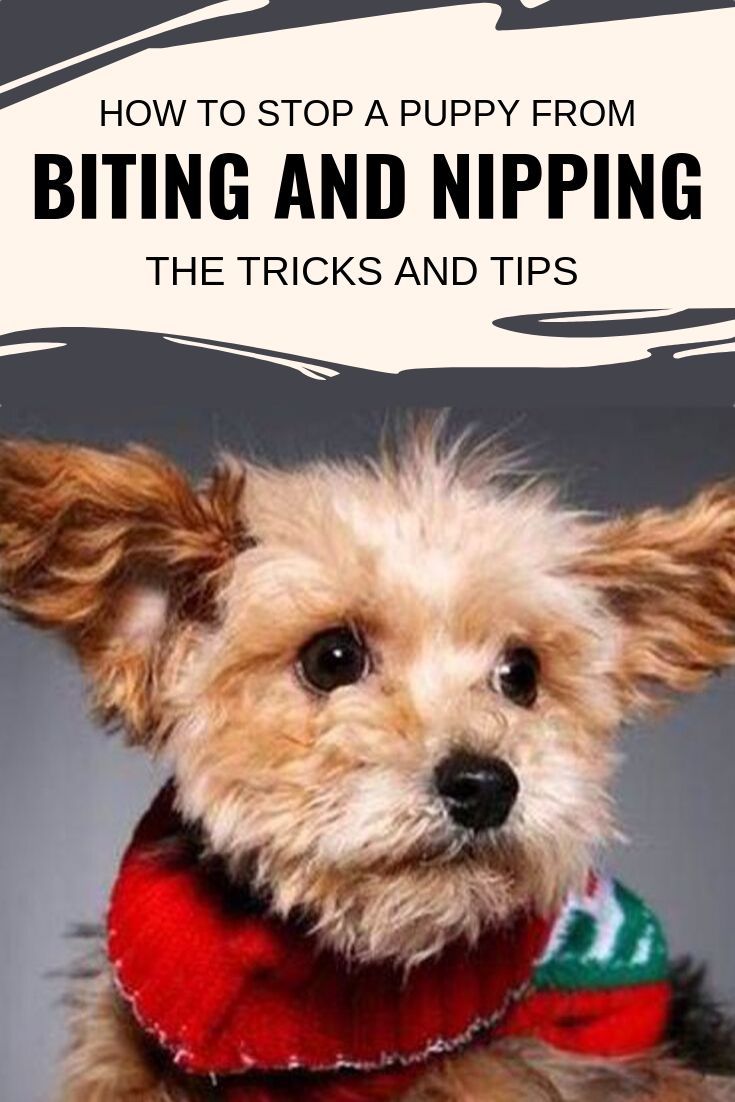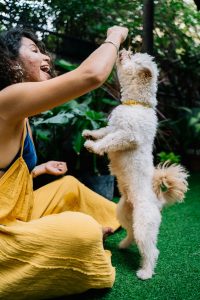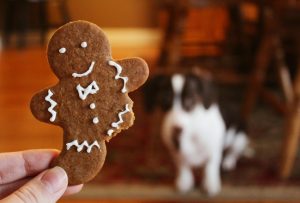Puppy biting is normal and expected during the early days of your dog’s life. Puppy biting is typical behavior that helps dogs develop a soft mouth and bite inhibition. And as such, it can also be a challenging period for every dog owner.
When your puppy is a few weeks old, biting your toes might seem like an adorable experience. But as the puppy grows older, the biting becomes stronger. And that biting can become a real problem.
You should not wait for puppies to stop biting on their own. Instead, you need to learn how to stop a puppy from biting and nipping.
If you do not teach your puppy to stop biting, your house will be a wreck, and your hands will be bitten. There is a small difference between adorable and aggressive biting, and it is imperative you learn it.
Why do puppies bite?
To solve any problem, you have to know the cause. Or the root of the issue. Before you start the how to stop a puppy from biting and nipping training, you have to understand why your puppy does it.
When your puppy is young, it is normal for him to use his mouth as a way to interact and communicate with you. When they are little, puppies use their teeth to explore the world and bite to investigate all the curious things around them.
Puppies can also bite when they are excited and that is usually when they see you, when children are around, when they play with toys, or when they see your hands moving.
During young days, puppy biting can also be a form of social play. And it goes into adulthood as well. You can easily spot dogs playing and biting in a doggy park.
Most importantly, puppies bite when they are little because of their teething troubles. They are experiencing pain as their teeth grow, and they bite and chew on things to stop the pain.
What is playful and what is aggressive?
The biggest challenge for novice owners, and for some experienced as well, is to tell the difference between playful and aggressive biting. We said before that puppies often use their teeth as a form of social exploration. Young dogs are rarely aggressive to others.
In some cases, however, young dogs might bite and growl, and be aggressive toward others. It is important to notice the signs of that aggressive behavior and correct it instantly.
You can look at two things, facial expression and body stance, as well as the timing of the biting.
For starters, his facial expression will tell if your dog is playful or aggressive. Relaxed face means playful exploration.
However, if your dog has a snarling stance, sniff body, and a crinkly face, and he is biting something, that is a sign of aggressive behavior. Playful dogs never stiffen up.
Timing is also important. If the incident happens after a show of unwanted temper, it is aggressive and hostile behavior. A lot of care should be taken if your puppy bites out of aggression.
When do puppies stop biting?
Biting and nipping is a challenging and difficult phase for every dog owner. Most puppies will eventually stop it, and that is when their baby teeth fall off, and their regular teeth are grown. Usually, this happens in the sixth month of their life.
Young dogs have 28 little baby teeth that fall off with time. They start falling off at age four months, and up to six months. During this time, the mouth of your puppy makes room for 42 adult teeth.
Teething is a painful experience for your little puppy. He can experience discomfort, inflammation of the gums, sore gums, and more. But once the teething phase ends, your puppy should stop biting.
It is important to understand some biting is not acceptable during this time. And to correct the behavior. Playful biting can be OK, but aggressive one, not.
How dangerous are puppy bites
Baby teeth, or milky teeth, are sharper than adult teeth. With that in mind, puppy bites can be painful.
You have to remember that teething puppies are prone to biting everything that comes to their mouth. And that sadly includes your toes, feet, fingers, and hands as well. You may suffer from play-bites.
If biting continues after adult teeth grow, it can cause serious injury and problems. The sharp canine tooth is dangerous for humans, and especially for little children.
How to stop a puppy from biting?
There are a couple of techniques that work well in training your puppy to stop biting. It is all about finding alternative ways to stimulate his attention.
Toys
Toys are great for puppies that bite. Yes, they will bite and chew on toys, but it is much better than on your hands. And more importantly, they learn which items are OK for chewing, and which are not.
You can live with puppies chewing on toys, that is normal. But you should not leave your puppy to bite on your hands.
Your puppy needs to use his teeth, and the play should be directed toward toys. Get strong and sturdy toys, and start a play session.
Every time your puppy tries to use his teeth to bite you, redirect him toward a toy, or put a toy in his mouth.
Positive reinforcement
Positive reinforcement training can be used to teach a puppy anything. Praising your puppy when he does well is the best technique to teach him what is good, and what is bad behavior.
When you play with your puppy, praise him when he does not bite. Use positive words of encouragement, give him treats, and lots of rewards. Just be careful, you want to praise good behavior only.
Ignore
Puppies crave for attention. And that is a powerful tool you can use. When your puppy bites you, ignore him for a few seconds.
He will know he did something wrong, and will try to “crawl back to you”. After a few seconds, let him play again with you, and if he does not bite, praise him.
Yeow
One method that dog experts recommend is the “yeow technique”. Basically, you react as another dog, and let out a high-pitched yelp when your puppy bites you.
Do this even if the bite does not hurt. The sound should make the puppy back off for a few seconds. Resume after a few seconds, and have toys by your side to put in your puppy’s mouth.
Leave and stay
Small puppies are overly excited, and it can be hard to teach them any new commands. But you should try and be persistent from their young age.
Try to teach them the “leave” and “stay” command. These two can be useful when your puppy is biting you.
Do not punish
The mistake many owners make is punishing their dog when they are biting. Punishment can encourage aggressive behavior, and dogs often retaliate with aggression.
With that in mind, here are some punishments you should never try:
- Use shock collars
- Roughly pull the dog away on a leash
- Snap or slap the dog on the nose
- Tightly hold his mouth closed
Some tricks that help
The use of praise, motivation, and encouragement can help your dog learn to stop biting. But for how to stop a puppy from biting and nipping successfully, we have some extra tricks and tips.
- Train your puppy to react to commands like “Stop”
- Provide your puppy with a comfy corner where he can be put to settle down
- Make sure to provide a daily dose of exercise to burn his energy
- Teach your puppy how to kiss your hand








